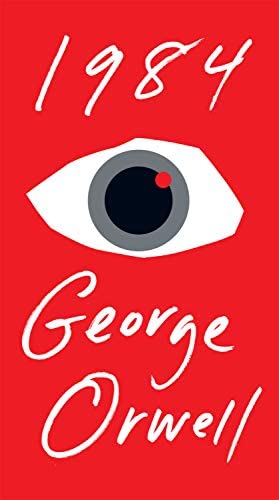
In George Orwell’s 1984, the main character Winston Smith lives in the futuristic
totalitarian society of Oceania in 1984 within a world constantly at war. Winston is a
middle-aged man and middle-class citizen who opposes Big Brother—the leading idolized figure
of the Republic of Oceania—and the values of the Party. Yet, anyone who expresses opposition
to the Party and its values, or even one who is suspected to be against the Party, mysteriously
vanishes, never to be seen again, and then is completely forgotten and erased from everyone’s
memories. Love is not allowed to exist, having children is seen strictly as a duty to the Party, and
any parent is at risk of being reported by their own children as a spy. Cameras lay everywhere,
from the images of Big Brother’s eyes on the propaganda flyers plastered onto every wall, to
behind the telescreens that must be turned on in every home 24/7. History is also changed on a
daily, minute-by-minute basis according to what the Party wants the people to believe and
according to what Big Brother claims. Workers spend all day just changing what the books say,
until not a single written text that held previous, erased information can be found. The
government ultimately survives by manipulating and controlling every individual’s memories of
the past until they automatically believe whatever the government claims. It is not uncommon to
see masses of people suddenly believing a direct contradiction to what was fact mere seconds
ago. The more intelligent ones who aren’t as easily fooled are doomed to eventually be
“vaporized” in the near future, as if they never existed before. Winston is one of these people.
Having already committed numerous thought crimes by the time the story begins,
Winston can’t bring himself to blindly follow and trust the Party and Big Brother like everyone
else (thought crimes are having mere thoughts against the values of the Party). Winston
desperately tries to hold onto faint memories of his childhood—the whiff of a real chocolate bar
and coffee beans along the streets, a time when family members loved each other, and even the
faces of his parents, who disappeared decades ago. Thus, skilled at controlling his outer
movements and facial expressions, Winston passes under the nose of the Thought Police while
impure, anti-Party thoughts rush through his head constantly. Then, Winston finally loses the
motivation to live safely but rather acts upon instinct, human instinct, and commits the
unthinkable: he buys a diary and writes in it, he has a love affair and chases after his desperate
desire to make love, and he finally joins a secret brotherhood to deliberately commit acts that
break the values of Big Brother, until he ultimately becomes hunted down as an enemy of the
Party.
1984 is Orwell’s eerie warning to readers about what an excessively conformed society
can do to us and our identities. He shows us the horrifying nature and reality of a government in
which one cannot think freely—when one cannot think freely for himself, his humanity and
sanity is essentially taken away. But, in the society Winston lives in, it seems like he alone
questions the authority of Big Brother and Big Brother’s control over everything, while everyone
else does not mind being without freedom of individual thought and would rather live safely and
healthily than risk being vaporized in order to live with individual thought and intellect. 1984
warns readers that a society like the one in the novel is bound to occur if people don’t protect
their human freedoms and rights, especially their right to individual thought and identity.
I would rate this classic novel a 9.5/10 and recommend it to any young teenager and
older. It’s one of those books everyone should read at some point in their lives.
Check out 1984 from NBPL!